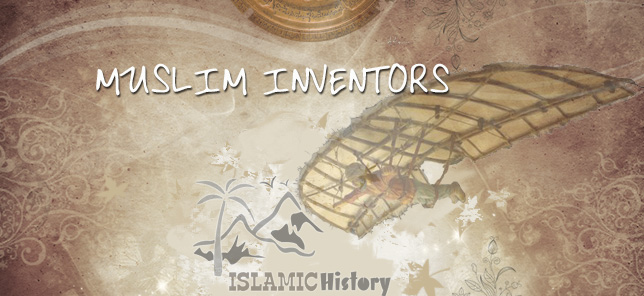Muslim scientists and inventors, including Arabs, Persians, and Turks, were probably hundreds of years ahead of their counterparts in the European Middle Ages. They drew influence from Aristotelian philosophy and Neo-platonists, as well as Euclid, Archimedes, Ptolemy, and others. The Muslims made innumerable discoveries and wrote countless books about medicine, surgery, physics, chemistry, philosophy, astrology, geometry, and various other fields.
Famous muslim scientists and inventors and their wonderful inventions.
Abu Nasr Al-Farabi (872 – 950) Also known as Alpharabius Arab scientist and philosopher, considered as one of the preeminent thinkers of the medieval era.
Al-Battani (858 – 929) Also known as Albatenius Arab mathematician, scientist, and astronomer who improved existing values for the length of the year and of the seasons.
Ibn Sina (980 – 1037)Also known as Avicenna. Persian philosophers and scientists have known for their contributions to Aristotelian philosophy and medicine.
Ibn Battuta (1304 – 1369)Also known as Shams ad–Din. Arab traveler and scholar who wrote one of the most famous travel books in history, the Rihlah.
Ibn Rushd (1126 – 1198) Also known as Averroes. Arab philosopher and scholar who produced a series of summaries and commentaries on most of Aristotle’s works and on Plato’s Republic.
Muhammad ibn Musa Al-Khwarizmi (780 – 850) Also known as Algoritmi or Algaurizin. His works introduced Hindu-Arabic numerals and the concepts of algebra into European mathematics.
Omar Khayyam (1048 – 1131) Persian mathematician, astronomer, and poet, known for his scientific achievements and Rubaiyat (“quatrains”).
Thabit ibn Qurra (826 – 901) Also known as Thebit. Arab mathematician, physician, and astronomer; who was the first reformer of the Ptolemaic system and the founder of statics.
Abu Bakr Al-Razi (865 – 925) Also known as Rhazes. Persian alchemist and philosopher, who was one of the greatest physicians in history.
Jabir Ibn Haiyan (722 – 804) Also known as Geber. The father of Arab chemistry known for his highly influential works on alchemy and metallurgy.
Ibn Ishaq Al-Kindi (801 – 873) Also known as Alkindus. Arab philosopher and scientist, who is known as the first of the Muslim peripatetic philosophers.
Ibn Al-Haytham (965 – 1040) Also known as Alhazen. Arab astronomer and mathematician knew for his important contributions to the principles of optics and the use of scientific experiments.
Ibn Zuhr (1091 – 1161) Also known as Avenzoar. Arab physician and surgeon, known for his influential book Al-Taisir Fil-Mudawat Wal-Tadbeer (Book of Simplification Concerning Therapeutics and Diet).
Ibn Khaldun (1332 – 1406) Arab historiographer and historian who developed one of the earliest nonreligious philosophies of history. Often considered as one of the forerunners of modern historiography, sociology, and economics.
Ibn Al-Baitar (1197 – 1248) Arab scientist, botanist, and physician who systematically recorded the discoveries made by Islamic physicians in the Middle Ages.
“The Golden Age“
or as people know it
“The Dark Ages“
Was it really dark ?
After Rome fell down, life was miserable in Western Europe, but in the Muslim world, it was a Golden age. Muslims had scientists in all fields of life. They invented a lot of things that our life now is based on.
This video made by 1001 Inventions is a small film showing some of the Muslim civilization scientists and their important inventions :
Al-Jazari: Civil engineer
Ibn Al-Haytham: Scientist in a lot of fields(Anatomy, Astronomy, Engineering, Mathematics, Medicine, ophthalmology, philosophy, physics, Psychology, Visual perception)
Abbas Qasim Ibn Firnas: Inventor, Engineer, Aviator and Physician
Abu al-Qasim al-Zahrawi: Physician, Surgeon(The father of modern surgery), Chemist, Cosmetologist, and Scientist
And More…

